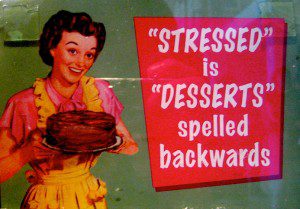 Guest post by Nathan Roberts, Summer Intern for The High Calling
Guest post by Nathan Roberts, Summer Intern for The High Calling
You have seen this movie: Dad is frazzled, pompous, overworked, and grumpy. He misses Son’s sports game because he’s stuck in traffic, making business negotiations on a bulky cell phone. Throughout the film, Dad slowly learns the importance of family. In a climactic sequence, he ditches an important business meeting and races off to Son’s Big Game. He gets there just in the nick of time. As Son’s team wins, dad cheers from the bleachers and Son smiles back.
Family wins, work loses. The credits roll. A Top 40 pop jam plays.
These sorts of plots demonstrate how workplace ambition can become an idol. Work can distract us from our families and leave us feeling grumpy and overextended. It promises fulfillment that it never provides. This is a message worth hearing on repeat.
However, movies like these tend to suggest that family life will solve all of our workplace stresses. Forget about any professional skillsets or workplace callings. When you ditch work for your family, everyone will finally achieve happiness. Home life is the easy solution to life’s problems.
But are these assumptions correct? Does work make us stressed and grumpy while family life makes us happy and satisfied? A recent study by Penn State researchers suggests that these assumptions may be totally incorrect.
When Are We Most Stressed?
In the study, one hundred and twenty two working adults were asked to self-report how stressed they felt throughout a normal workday. At the same time, researchers monitored their levels of cortisol, a stress-indicating hormone. They discovered that participants’ cortisol levels were, generally, higher at home than at work. In some cases, cortisol data even contradicted participants’ self-reports. Many claimed to be more stressed at work than at home, whereas data suggested the opposite.
If this study is accurate, it reveals a counterintuitive truth: our home lives can be more stressful than our work lives! Family life is not a reliable antidote to our work stresses after all, but often functions as another stressor.
This may seem obvious. As TIME’s Belinda Luscombe points out, at home “not only are the tasks apparently infinite, the co-workers are much harder to motivate.” Indeed, this study should reinforce the fact that homemakers are workers of the highest caliber.
And yet, it reveals how stay-at-home moms and dads aren’t the only domestic “workers” out there. We arrive at a potentially upsetting truth: we spend our entire lives, in and out of the office, stressed and working.
Stop Trying to Eliminate Stress at Work
Eliminating stress may not be the right solution, even if it’s possible. Instead, we can learn from the subjects who claimed that they weren’t stressed at home even though the cortisol reported differently. Initially, I thought that these subjects were in denial. They expected to be stressed at work and relaxed at home, so they reported as if this were true.
But what if, because they love working for their spouse or family, they didn’t feel negative stress? There are actually two types of stress. One of them is “distress.” This is the sort of negative stress we feel when we’re limited and overwhelmed. The other is “eustress,” or “good stress.” We feel eustress when we’re positively empowered and energized by tasks at hand. When we’re feeling eustress, we hardly think of it as stress at all. We won’t report that we’re stressed; we’ll say that we’re empowered and enthusiastic.
Perhaps we shouldn’t limit our stressors, but find sources of that provide eustress instead of distress. When we’re doing any sort of doing meaningful work, this work will cause joyous eustress. And if we find ways to glorify God in all we do, in the office and at home, then maybe we can feel a bit of eustress in all areas of our lives.
[Photo by Rick Audet, edited by Nathan Roberts, used with permission via Creative Commons.]












